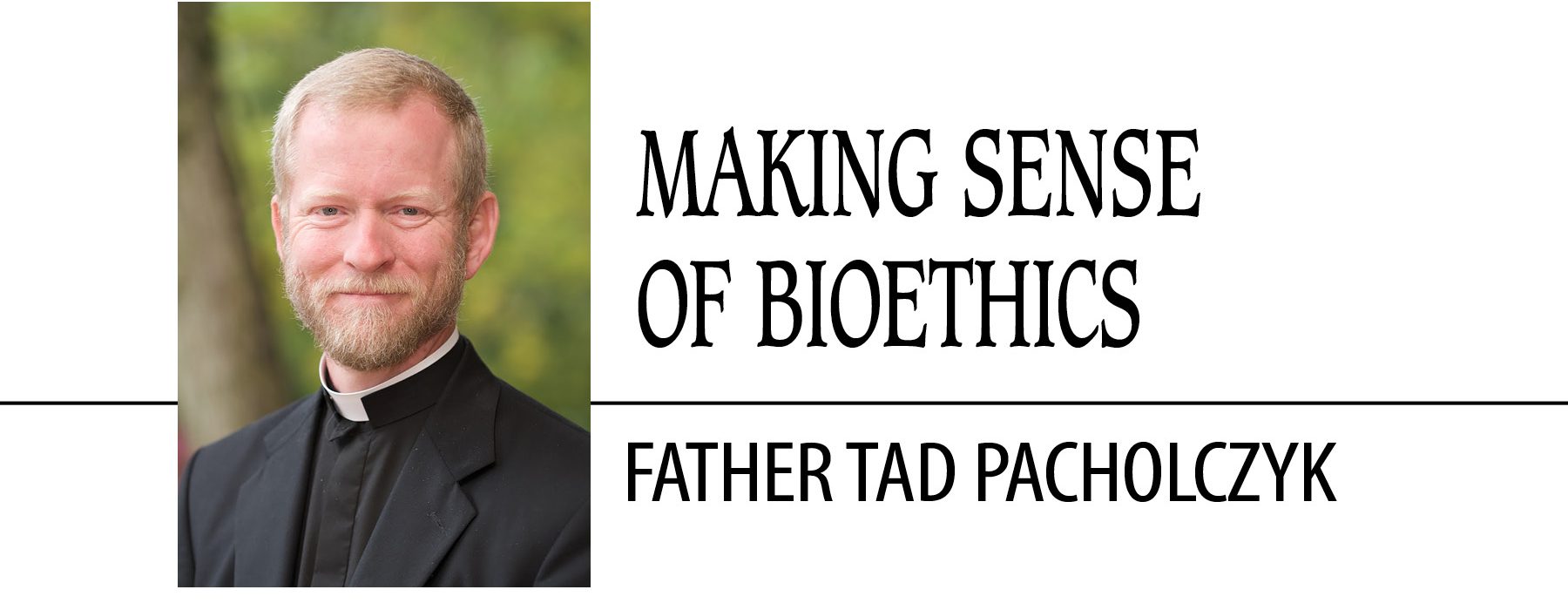April 10, 2024 // Perspective
Poking the Hornet’s Nest of In Vitro Fertilization
A sweeping decision by the Alabama Supreme Court back in February sent shock waves through the world of assisted reproduction. Alabama Justice Jay Mitchell, writing on behalf of the court’s 7-2 majority, concluded that human embryos in in vitro fertilization clinics “are ‘children,’ … without exception based on developmental stage, physical location, or any other ancillary characteristics.”
A firestorm followed. The decision uncomfortably reignited basic ethical questions that those in the IVF business had hoped were behind us. It had obvious financial implications, since it allowed parents to seek damages against IVF clinics when their embryonic children were lost or destroyed. It effectively upended the tacit assumption guiding the work of every IVF clinic – namely, that human embryos are nothing special, just a “means to an end” or objects to be used in the quest to satisfy customers and improve profitability. As one commentator put it, the court’s decision is “clearly extraordinary in its determination that in vitro, eight-cell, microscopic embryos are considered people.”
But should it really be so extraordinary? What’s extraordinary is the fact that so many people, for so long, could become so riveted to the falsehood that little human beings are not human beings just because they are little.
IVF has become so engrained in lifestyle choices that it’s now not only awkward, but positively impolite, to suggest that pre-born life has intrinsic value, whether in a petri dish, a freezer, or a womb. Yet scientific facts have a hard edge to them, and as Ronan O’Rahilly and Fabiola Müller put it in “Human Embryology and Teratology,” the third edition of their famous textbook, “Although life is a continuous process, fertilization is a critical landmark because, under ordinary circumstances, a new genetically distinct human organism is formed.”
The awkward truth for the purveyors of IVF is the fact that we are all embryos who have grown up, and if all men are created equal, then all embryos are human beings, each of whom ought to be unconditionally safeguarded and never exploited.
The Alabama court ruling thrust the state into the national spotlight and sent panicked lawmakers on both sides of the aisle scrambling to come up with a quick legislative fix. Only a few weeks after the judicial decision, the powerful infertility industry succeeded in convincing both the Alabama House and the Senate to pass legislation guaranteeing fertility clinics and doctors immunity from prosecution for any “death or damage to an embryo” that might occur during the IVF process.
IVF involves at least two major moral problems – the collateral damage problem and the intrinsic problem.”
The collateral damage problem means that in order to achieve one IVF birth, clinic workers may create a dozen embryos, prescreen, and transfer several of the “best” ones, discard or freeze the “leftovers,” and if more than one implants successfully, selectively abort the additional fetus(es). Those IVF-produced babies who manage to run this gauntlet and cross the threshold of birth still manifest elevated rates of birth defects when compared to normally conceived babies, another instance of collateral damage.
Parental wants are always assumed by the industry to trump their children’s best interests, allowing for grave human rights violations to become standards of infertility care.
When it comes to the intrinsic problem, meanwhile, IVF always involves actions contrary to the meaning of marriage and to the core designs of human marital sexuality.
Even if parts of society assert otherwise, sex remains fundamentally about bringing forth the next generation of human life within the stable bond of marriage. Children are not commodities and are entitled to be brought into the world through the loving embrace of the marital act, and within the protective and loving environment of the maternal womb, rather than being manufactured and manhandled under laboratory lights by hired hands in fertility clinics.
Through IVF, we create an exploitable subclass – those who, although they are just as human as the rest of us, are unjustly instrumentalized and dehumanized by being brought into the world in a manner distinct from the rest of us. This subclass is produced and subjugated through human craftiness and scheming instead of arriving as free and undeserved gifts through the bodily self-surrender and fruitful spousal love of the marital embrace.
For those interested in understanding these issues more completely, I have recently produced two full-length videos on YouTube and Vimeo, entitled “The Struggle of Infertility” and “Why is IVF Wrong?”
Let us hope that the Alabama court’s decision will provide the impetus for some serious soul-searching about the ongoing calamity of IVF in our society.
Father Tadeusz Pacholczyk, Ph.D., is a priest of the Diocese of Fall River, Massachusetts and serves as Senior Ethicist at the National Catholic Bioethics Center in Philadelphia.
The best news. Delivered to your inbox.
Subscribe to our mailing list today.






